Thousands of 18-year-olds are planning to study abroad, where courses
are increasingly taught in English and tuition costs are a fraction of
what they would have to pay at home.
Welcome to the £9,000 tuition fee refugees. The number of British students applying to Dublin's Trinity College has jumped by 20% to nearly 2,000 this year. At University College Dublin (UCD), applications from students with British A-levels
have surged 37% from 800 to around 1,100. The University of Groningen
in the Netherlands, where many courses are taught entirely in English,
has seen the number of applicants from Britain quadruple in the last two
years alone.
British 18-year-olds are fleeing the prospect of a £50,000 bill for studying at home – and finding they can save as much as £25,000 over three years by studying abroad as well as enjoying a life-changing experience.
In Denmark, tuition fees for students from within the EU are zero. In the Netherlands, they are around €1,700 a year (£1,330), and it's even possible to access Dutch state grants worth around €500 (£390) a month (see page 5). Irish institutions such as Trinity and UCD, ranked among the top universities in Europe, charge just €2,250 a year (£1,760) to EU citizens.
It has also emerged that a significant number of UK students have applied to universities in the EU as an "insurance" against failing to achieve the grades they want and having to go through clearing. Many British "Russell group" universities now demand A-level scores of AAB and above, while similarly-ranked Dutch universities accept lower grades – though they are much tougher (almost brutal, say some) about weeding out underperforming students in their first term.
"It's not exactly a flood of students fleeing the new tuition fees in Britain, but we are seeing much more interest," says Mark Huntington, who runs astarfuture.co.uk, which has since 2006 offered a free advisory service to British students and parents considering higher education opportunities abroad. There are now more than 1,200 degree courses in Europe (not including Ireland) taught entirely in English, while in the Netherlands alone 20 universities are teaching in English.
"The overall cost of a three-year course in Holland, taking in tuition fees, accommodation and living costs, will be around £24,000 compared with the £50,000 or so it now costs in the UK," says Huntington. But, as he warns on his website, "we don't believe you should go abroad just to save money and there are lots of other reasons why studying abroad is a good idea.
"It is also worth bearing in mind that even though a degree abroad may be significantly cheaper than an equivalent qualification in the UK, you will possibly have to pay out more up front than if you were to study at home."
Not being able to speak a word of Dutch, Danish or Flemish does not seem to be a problem. "You could survive the whole way through a course in Holland without learning a word of Dutch," says Huntington. "I wouldn't recommend it, but it is possible."
Hania Thurlow, 18, from Norwich, left for Maastricht University yesterday a day after learning she had got A*AB in her A-levels. She initially planned to go to the University of Exeter, anticipating three A grades, but was deterred by the costs.
"The fees really put me off," she said. "I know you can take out loans and don't have to repay them straight away, but it's still a huge debt. Accommodation costs are lower too. In Maastricht I will pay €375 (£293) rent a month for a room, but Exeter wanted £125 a week (£540/month). Even travel is cheaper – I can fly home from Eindhoven for around £30 on Ryanair, less than the cost of going to Manchester."
She is aware of the tougher first year students face in the Netherlands compared to Britain, but is unfazed: "The first year is supposed to be quite difficult. But I'm going to university to study hard anyway." She has also already lined up part-time employment (arranged through the university) as a babysitter for Dutch families, and will be starting lessons in Dutch when she arrives. She says one other student from her school in Norwich is already at Maastricht, and another has applied.
Christian Garrard from Canterbury, who is about to start his fourth year studying law at the University of Groningen says: "It's the best decision I have ever made. I had a Dutch girlfriend and if it wasn't for her I would probably have thought, no way. It was only really daunting until I got here. As an international student you live in an international house, mostly with other foreign students who all speak English, while Groningen is almost becoming a bilingual university. I've thrived on it, though maybe if you're more of a home-bird it's not for you."
Garrard worked part-time, which also enabled him to access Dutch grants, meaning that after two years he had no debts at all: "I was even saving money at one point."
But it is the Republic of Ireland which is seeing the biggest surge in British students beating the tuition fee hikes. For many 18-year-olds it is far less daunting than going to a non-English speaking country and many arrive with family connections in the country. The major barrier is academic entry requirements. "The grade requirements can be almost ridiculously high," warns Huntington. The Irish equivalent of A-levels is the Leaving Cert, which covers six subjects. Unless a British student has studied four A-levels and gained good grades, they may find it difficult to obtain enough points to qualify for an Irish university.
Prices in Dublin, once one of Europe's most expensive cities, is another issue, though the cost of living has fallen in recent years. UCD says rent for on-campus rooms are €486 a month (£380), while living off campus nearby in Rathmines would be about €450 (£352). The universities of Cork, Limerick and Galway all charge similar tuition fees but with lower living costs.
Most of the "bargain" tuition fees are in EU countries, but some students are heading further afield. The University of Nottingham has set up campuses in Kuala Lumpur, Malaysia, and Ningbo, China (south of Shanghai), where students graduate with a UK degree. At £7,100, fees at the Kuala Lumpur campus are not far short of the cost of studying at Nottingham, and most students are from Malaysia, but a number are now coming from Britain, many having gained scholarships. Without scholarships (and no access to student grants) the financial equation is much less attractive, though living costs are a fraction of the UK. In Ningbo, student accommodation is £100 a year. Nottingham was first to pioneer campuses abroad, and others are following: Reading University is opening a Malaysian campus in 2015 while Liverpool is partnering with a university in Shanghai.
Emerging universities in Asia, keen to recruit European students, are also offering highly attractive scholarship programmes to students with decent A-level grades. Ben Poulter, 18, from Brentwood County High, a state school in Essex, will be packing his bags in a few weeks' time to head to Singapore, where he will begin a four-year course in business at SP Jain Global School of Management. His second year will be in Dubai, followed by two years in Sydney, Australia. And the $18,000 annual tuition fees will be sliced to zero as it's entirely paid for by the scholarship.
"SP Jain came to our school and gave a presentation to year 12 and year 13 [lower and upper sixth]," he says. "I applied and they offered me a scholarship almost immediately after the interview so long as I got AAB at A-level. I'm really excited. It's a little bit daunting, but an incredible opportunity."
Poulter was lucky; his school encouraged students to consider opportunities abroad. But Gerard Spencer, founder of europeducation.org.uk, which provides information on studying in Europe for students and parents, says: "Unfortunately, most British schools don't talk about options outside the UK for higher education. Admissions to European universities for September 2012 are now closed. But postponing the decision for a year and starting in a European university in 2013 would be a unique and life-changing decision."
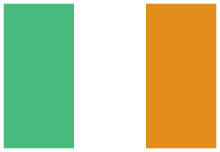 Tuition fee €2,250 (£1,760) student contribution for
2012/2013, expected to rise to €2,500 (£1,955) next year. Students also
pay "capitation" fees at institutions such as University College Dublin
(€183/£143) to cover facilities such as its 50m pool. Private
universities charge around €5,000 (£3,900) a year.
Tuition fee €2,250 (£1,760) student contribution for
2012/2013, expected to rise to €2,500 (£1,955) next year. Students also
pay "capitation" fees at institutions such as University College Dublin
(€183/£143) to cover facilities such as its 50m pool. Private
universities charge around €5,000 (£3,900) a year.
What's available Seven universities, 14 institutes of technology and a number of private universities. Trinity College Dublin and University College Dublin are ranked in the world's top 200 universities.
Entry requirements Tough. Based on points score in the Irish Leaving Certificate (six subjects, maximum 600 points for six As). A British A grade is worth 135 points, so students will need four good A-levels to obtain a place a leading university. Irish universities do not make conditional offers. No one receives an offer from an Irish university until they have received their grades.
Grants/Scholarships No Irish state grants for UK students. Individual universities have limited scholarships/exhibitions for top students.
Accommodation Not cheap. As an example, University College Dublin this year charges €486 (£380) per month.
Living costs High, especially in Dublin, where the price level is similar to London or higher. Part-time earning opportunities more limited than in the past; the Irish unemployment rate is 14.8% compared with 8.1% in the UK.
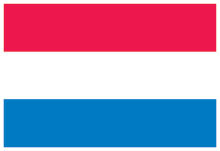 Tuition fee €1,771 (£1,385) for most courses. Expected to rise in line with inflation.
Tuition fee €1,771 (£1,385) for most courses. Expected to rise in line with inflation.
What's available Twenty universities offer degrees taught entirely in English, although at some (such as Amsterdam) there may be just one or two courses in English. Groningen and Maastricht are the most popular among British applicants. Groningen, founded in 1614 and one of the Netherlands' oldest universities, currently offers nine undergraduate programmes in English but will raise that to 19 in 2013.
Entry requirements A general rule is that a GCSE in three subjects with marks ranging from A*-C, plus a GCE (A-level) with three subjects at advanced level (six different subjects in total) is comparable to a Dutch VWO diploma and thus admissible for a programme in a Dutch university.
Grants/Scholarships British students can access Dutch student finance on exactly the same basis as local students. So long as you find part-time work of at least 32 hours a month and pay Dutch national insurance, you qualify for a grant of €266 (£208) a month, plus you can apply for a means-tested additional grant of up to €242 (£189) a month. Students can also borrow up to €285 (£223) a month if they have been awarded the full means-tested grant.
Accommodation Expensive in Amsterdam. Don't expect en-suite bathrooms. Rents outside the capital are typically €200-€400 (£150-£300) a month.
Living costs Approximately the same as London and the south-east of England, but higher than the north of England. Expect to pay around £3.70 for a pint in city centre Dutch bars.
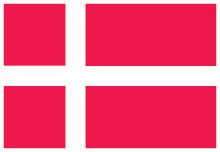 Tuition fee Denmark does not charge tuition fees to anyone with an EU passport. So nothing to pay over three years.
Tuition fee Denmark does not charge tuition fees to anyone with an EU passport. So nothing to pay over three years.
What's available There are 27 universities and higher education colleges in Denmark, but only a few offer courses taught in English. About the best option is the University of Southern Denmark, based in Odense, about an hour-and-a-half south of Copenhagen.
Entry requirements If you have A-levels you should be eligible for entry to a Danish university. Details at StudyinDenmark.dk
Grants/Scholarships Limited. No state grants or loans for UK students.
Accommodation USD says expect to pay around £235 a month for rent, but much more in Copenhagen.
Living costs Very high. Denmark is not in the euro and its krone has risen in value in recent years. But students with EU nationality are able to work, and pay rates are relatively high.
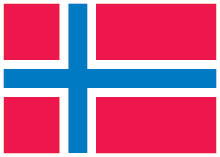 Tuition fee Norway's state universities do not charge students from any country.
Tuition fee Norway's state universities do not charge students from any country.
What's available There are seven universities and eight specialist universities, but few offer courses taught in English. But the University of Nordland, inside the Arctic Circle, welcomed 200 international students last year and has courses taught in English in subjects such as marine ecology.
Entry requirements The minimum requirement is five GCE passes, of which two must be A-levels.
Grants/Scholarships Limited.
Accommodation Student rent at the University of Nordland is £375 a month
Living costs Some of the highest in the world, with the Norwegian krone one of the world's strongest currencies. A bottle of beer in a pub can cost anything up to £7, while a loaf of bread is around £2.70.
 Tuition fee Vary enormously. Most universities quote
all-in tuition, lodging and food prices at around $20,000 - $45,000 a
year (£12,700-£28,600), so they're not cheap.
Tuition fee Vary enormously. Most universities quote
all-in tuition, lodging and food prices at around $20,000 - $45,000 a
year (£12,700-£28,600), so they're not cheap.
What's available Immense. There are around 4,000 universities in the US.
Entry requirements Visas are required, and you must depart after completing the course. International students must have a certificate of completion which allows admission to a university in their home country.
Grants/Scholarships Extensive scholarship programmes in academic subjects and sports. The scholarship will typically be worth around 50% of the cost of studying in the US. InTuitionScholarships (student-scholarships.com) says it helps around 50-60 Brits a year obtain academic scholarships to the US.
Accommodation With a scholarship, you should be paying around £6,500-£9,000 a year for the total package of accommodation, tuition and food.
Living costs Vary enormously. Accommodation outside the centre of major cities is cheap, but food is about the same price as the UK.
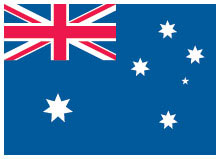 Tuition fee Fees are usually in the range of
AU$15,000-20,000 (£10,000 - £13,000) for undergraduate degrees, so
higher than the UK. Huge amounts of information at studyinaustralia.gov.au.
Tuition fee Fees are usually in the range of
AU$15,000-20,000 (£10,000 - £13,000) for undergraduate degrees, so
higher than the UK. Huge amounts of information at studyinaustralia.gov.au.
What's available Vast array at some of the world's best universities; 21 of the country's universities are ranked in the world's top 400.
Entry requirements Similar to UK. Terms start in February. Students must obtain visas to study in Australia.
Grants/Scholarships Australia has a wide array of scholarships on offer.
Accommodation Expect to pay up to £700 a month for sharing in sought-after locations.
Living costs Living costs in Sydney are now even higher than London.
Article from: http://www.guardian.co.uk/money/2012/aug/17/save-25000-university-tuition-fee-refugees?fb=optOut
British 18-year-olds are fleeing the prospect of a £50,000 bill for studying at home – and finding they can save as much as £25,000 over three years by studying abroad as well as enjoying a life-changing experience.
In Denmark, tuition fees for students from within the EU are zero. In the Netherlands, they are around €1,700 a year (£1,330), and it's even possible to access Dutch state grants worth around €500 (£390) a month (see page 5). Irish institutions such as Trinity and UCD, ranked among the top universities in Europe, charge just €2,250 a year (£1,760) to EU citizens.
It has also emerged that a significant number of UK students have applied to universities in the EU as an "insurance" against failing to achieve the grades they want and having to go through clearing. Many British "Russell group" universities now demand A-level scores of AAB and above, while similarly-ranked Dutch universities accept lower grades – though they are much tougher (almost brutal, say some) about weeding out underperforming students in their first term.
"It's not exactly a flood of students fleeing the new tuition fees in Britain, but we are seeing much more interest," says Mark Huntington, who runs astarfuture.co.uk, which has since 2006 offered a free advisory service to British students and parents considering higher education opportunities abroad. There are now more than 1,200 degree courses in Europe (not including Ireland) taught entirely in English, while in the Netherlands alone 20 universities are teaching in English.
"The overall cost of a three-year course in Holland, taking in tuition fees, accommodation and living costs, will be around £24,000 compared with the £50,000 or so it now costs in the UK," says Huntington. But, as he warns on his website, "we don't believe you should go abroad just to save money and there are lots of other reasons why studying abroad is a good idea.
"It is also worth bearing in mind that even though a degree abroad may be significantly cheaper than an equivalent qualification in the UK, you will possibly have to pay out more up front than if you were to study at home."
Not being able to speak a word of Dutch, Danish or Flemish does not seem to be a problem. "You could survive the whole way through a course in Holland without learning a word of Dutch," says Huntington. "I wouldn't recommend it, but it is possible."
Hania Thurlow, 18, from Norwich, left for Maastricht University yesterday a day after learning she had got A*AB in her A-levels. She initially planned to go to the University of Exeter, anticipating three A grades, but was deterred by the costs.
"The fees really put me off," she said. "I know you can take out loans and don't have to repay them straight away, but it's still a huge debt. Accommodation costs are lower too. In Maastricht I will pay €375 (£293) rent a month for a room, but Exeter wanted £125 a week (£540/month). Even travel is cheaper – I can fly home from Eindhoven for around £30 on Ryanair, less than the cost of going to Manchester."
She is aware of the tougher first year students face in the Netherlands compared to Britain, but is unfazed: "The first year is supposed to be quite difficult. But I'm going to university to study hard anyway." She has also already lined up part-time employment (arranged through the university) as a babysitter for Dutch families, and will be starting lessons in Dutch when she arrives. She says one other student from her school in Norwich is already at Maastricht, and another has applied.
Christian Garrard from Canterbury, who is about to start his fourth year studying law at the University of Groningen says: "It's the best decision I have ever made. I had a Dutch girlfriend and if it wasn't for her I would probably have thought, no way. It was only really daunting until I got here. As an international student you live in an international house, mostly with other foreign students who all speak English, while Groningen is almost becoming a bilingual university. I've thrived on it, though maybe if you're more of a home-bird it's not for you."
Garrard worked part-time, which also enabled him to access Dutch grants, meaning that after two years he had no debts at all: "I was even saving money at one point."
But it is the Republic of Ireland which is seeing the biggest surge in British students beating the tuition fee hikes. For many 18-year-olds it is far less daunting than going to a non-English speaking country and many arrive with family connections in the country. The major barrier is academic entry requirements. "The grade requirements can be almost ridiculously high," warns Huntington. The Irish equivalent of A-levels is the Leaving Cert, which covers six subjects. Unless a British student has studied four A-levels and gained good grades, they may find it difficult to obtain enough points to qualify for an Irish university.
Prices in Dublin, once one of Europe's most expensive cities, is another issue, though the cost of living has fallen in recent years. UCD says rent for on-campus rooms are €486 a month (£380), while living off campus nearby in Rathmines would be about €450 (£352). The universities of Cork, Limerick and Galway all charge similar tuition fees but with lower living costs.
Most of the "bargain" tuition fees are in EU countries, but some students are heading further afield. The University of Nottingham has set up campuses in Kuala Lumpur, Malaysia, and Ningbo, China (south of Shanghai), where students graduate with a UK degree. At £7,100, fees at the Kuala Lumpur campus are not far short of the cost of studying at Nottingham, and most students are from Malaysia, but a number are now coming from Britain, many having gained scholarships. Without scholarships (and no access to student grants) the financial equation is much less attractive, though living costs are a fraction of the UK. In Ningbo, student accommodation is £100 a year. Nottingham was first to pioneer campuses abroad, and others are following: Reading University is opening a Malaysian campus in 2015 while Liverpool is partnering with a university in Shanghai.
Emerging universities in Asia, keen to recruit European students, are also offering highly attractive scholarship programmes to students with decent A-level grades. Ben Poulter, 18, from Brentwood County High, a state school in Essex, will be packing his bags in a few weeks' time to head to Singapore, where he will begin a four-year course in business at SP Jain Global School of Management. His second year will be in Dubai, followed by two years in Sydney, Australia. And the $18,000 annual tuition fees will be sliced to zero as it's entirely paid for by the scholarship.
"SP Jain came to our school and gave a presentation to year 12 and year 13 [lower and upper sixth]," he says. "I applied and they offered me a scholarship almost immediately after the interview so long as I got AAB at A-level. I'm really excited. It's a little bit daunting, but an incredible opportunity."
Poulter was lucky; his school encouraged students to consider opportunities abroad. But Gerard Spencer, founder of europeducation.org.uk, which provides information on studying in Europe for students and parents, says: "Unfortunately, most British schools don't talk about options outside the UK for higher education. Admissions to European universities for September 2012 are now closed. But postponing the decision for a year and starting in a European university in 2013 would be a unique and life-changing decision."
Reality restricts the overseas options
British students have a huge range of options for studying abroad, but the reality – if you want to keep costs low and can only speak English – is that Ireland and the Netherlands are head and shoulders above the rest. We've highlighted a few other choices – Denmark and Norway in particular, as they do not charge tuition fees. We excluded France and Germany because they have few courses taught in English (apart from a few specialist private universities). The US and Australia, with pricey tuition fees, only come into the picture because they offer numerous scholarships.Republic of Ireland
 Tuition fee €2,250 (£1,760) student contribution for
2012/2013, expected to rise to €2,500 (£1,955) next year. Students also
pay "capitation" fees at institutions such as University College Dublin
(€183/£143) to cover facilities such as its 50m pool. Private
universities charge around €5,000 (£3,900) a year.
Tuition fee €2,250 (£1,760) student contribution for
2012/2013, expected to rise to €2,500 (£1,955) next year. Students also
pay "capitation" fees at institutions such as University College Dublin
(€183/£143) to cover facilities such as its 50m pool. Private
universities charge around €5,000 (£3,900) a year.What's available Seven universities, 14 institutes of technology and a number of private universities. Trinity College Dublin and University College Dublin are ranked in the world's top 200 universities.
Entry requirements Tough. Based on points score in the Irish Leaving Certificate (six subjects, maximum 600 points for six As). A British A grade is worth 135 points, so students will need four good A-levels to obtain a place a leading university. Irish universities do not make conditional offers. No one receives an offer from an Irish university until they have received their grades.
Grants/Scholarships No Irish state grants for UK students. Individual universities have limited scholarships/exhibitions for top students.
Accommodation Not cheap. As an example, University College Dublin this year charges €486 (£380) per month.
Living costs High, especially in Dublin, where the price level is similar to London or higher. Part-time earning opportunities more limited than in the past; the Irish unemployment rate is 14.8% compared with 8.1% in the UK.
Netherlands
 Tuition fee €1,771 (£1,385) for most courses. Expected to rise in line with inflation.
Tuition fee €1,771 (£1,385) for most courses. Expected to rise in line with inflation.What's available Twenty universities offer degrees taught entirely in English, although at some (such as Amsterdam) there may be just one or two courses in English. Groningen and Maastricht are the most popular among British applicants. Groningen, founded in 1614 and one of the Netherlands' oldest universities, currently offers nine undergraduate programmes in English but will raise that to 19 in 2013.
Entry requirements A general rule is that a GCSE in three subjects with marks ranging from A*-C, plus a GCE (A-level) with three subjects at advanced level (six different subjects in total) is comparable to a Dutch VWO diploma and thus admissible for a programme in a Dutch university.
Grants/Scholarships British students can access Dutch student finance on exactly the same basis as local students. So long as you find part-time work of at least 32 hours a month and pay Dutch national insurance, you qualify for a grant of €266 (£208) a month, plus you can apply for a means-tested additional grant of up to €242 (£189) a month. Students can also borrow up to €285 (£223) a month if they have been awarded the full means-tested grant.
Accommodation Expensive in Amsterdam. Don't expect en-suite bathrooms. Rents outside the capital are typically €200-€400 (£150-£300) a month.
Living costs Approximately the same as London and the south-east of England, but higher than the north of England. Expect to pay around £3.70 for a pint in city centre Dutch bars.
Denmark
 Tuition fee Denmark does not charge tuition fees to anyone with an EU passport. So nothing to pay over three years.
Tuition fee Denmark does not charge tuition fees to anyone with an EU passport. So nothing to pay over three years.What's available There are 27 universities and higher education colleges in Denmark, but only a few offer courses taught in English. About the best option is the University of Southern Denmark, based in Odense, about an hour-and-a-half south of Copenhagen.
Entry requirements If you have A-levels you should be eligible for entry to a Danish university. Details at StudyinDenmark.dk
Grants/Scholarships Limited. No state grants or loans for UK students.
Accommodation USD says expect to pay around £235 a month for rent, but much more in Copenhagen.
Living costs Very high. Denmark is not in the euro and its krone has risen in value in recent years. But students with EU nationality are able to work, and pay rates are relatively high.
Norway
 Tuition fee Norway's state universities do not charge students from any country.
Tuition fee Norway's state universities do not charge students from any country.What's available There are seven universities and eight specialist universities, but few offer courses taught in English. But the University of Nordland, inside the Arctic Circle, welcomed 200 international students last year and has courses taught in English in subjects such as marine ecology.
Entry requirements The minimum requirement is five GCE passes, of which two must be A-levels.
Grants/Scholarships Limited.
Accommodation Student rent at the University of Nordland is £375 a month
Living costs Some of the highest in the world, with the Norwegian krone one of the world's strongest currencies. A bottle of beer in a pub can cost anything up to £7, while a loaf of bread is around £2.70.
United States
 Tuition fee Vary enormously. Most universities quote
all-in tuition, lodging and food prices at around $20,000 - $45,000 a
year (£12,700-£28,600), so they're not cheap.
Tuition fee Vary enormously. Most universities quote
all-in tuition, lodging and food prices at around $20,000 - $45,000 a
year (£12,700-£28,600), so they're not cheap.What's available Immense. There are around 4,000 universities in the US.
Entry requirements Visas are required, and you must depart after completing the course. International students must have a certificate of completion which allows admission to a university in their home country.
Grants/Scholarships Extensive scholarship programmes in academic subjects and sports. The scholarship will typically be worth around 50% of the cost of studying in the US. InTuitionScholarships (student-scholarships.com) says it helps around 50-60 Brits a year obtain academic scholarships to the US.
Accommodation With a scholarship, you should be paying around £6,500-£9,000 a year for the total package of accommodation, tuition and food.
Living costs Vary enormously. Accommodation outside the centre of major cities is cheap, but food is about the same price as the UK.
Australia
 Tuition fee Fees are usually in the range of
AU$15,000-20,000 (£10,000 - £13,000) for undergraduate degrees, so
higher than the UK. Huge amounts of information at studyinaustralia.gov.au.
Tuition fee Fees are usually in the range of
AU$15,000-20,000 (£10,000 - £13,000) for undergraduate degrees, so
higher than the UK. Huge amounts of information at studyinaustralia.gov.au. What's available Vast array at some of the world's best universities; 21 of the country's universities are ranked in the world's top 400.
Entry requirements Similar to UK. Terms start in February. Students must obtain visas to study in Australia.
Grants/Scholarships Australia has a wide array of scholarships on offer.
Accommodation Expect to pay up to £700 a month for sharing in sought-after locations.
Living costs Living costs in Sydney are now even higher than London.
Article from: http://www.guardian.co.uk/money/2012/aug/17/save-25000-university-tuition-fee-refugees?fb=optOut

No comments:
Post a Comment